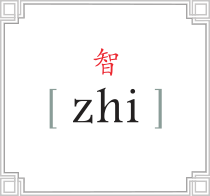Moroccan Mint


Ingredients: Green loose tea leaves* and peppermint*
(*Organic)
To create our Moroccan Mint tea, we start with our Chinese Gunpowder tea and blend in heaps of fresh peppermint leaves from Oregon state.
Traditionally, this tea is served with copious quantities of sugar. We prefer it plain or with a bit of agave nectar or honey to give this tea even more body and richness. Crisp, naturally cooling and refreshing, this hand blended original signature makes a very nice and potent iced tea!
Intense flavor with moderate caffeine.
Water: 195°F | Leaves: 2 tsp per 12 ounce cup | Infusion Time: 2 -3 minutes
Basic Steeping Tips
- Use filtered or spring water, whenever possible
- Don’t over-boil water
- If you want stronger tea, use more leaves instead of steeping for a longer time
- Great for cold steeping
Recent studies in leading medical journals declare tea a consistantly positive tonic. Tea has been studied for its health benefits for our hearts, as a cancer preventor, fat buster, an immune stimulant, arthritis soother, virus fighter and cholesterol detoxifier. Mint is a great palate cleanser and promotes digestion while soothing inflammation.
Moroccan Mint tea is exceptionally popular in Morocco. It is at the heart of any social gathering, from an informal visit to a neighbor to a lavish soiree. It is not just drunk during mealtimes, but also served throughout the day. Unlike Moroccan food, which is prepared mainly by women, tea is traditionally prepared by men, usually the head of the house. When this tea is served to guests, a minimum of two cups must be drunk so as not to offend the host.
Moroccan Mint tea is made from Gunpowder tea, and mint and honey or sugar is added to it after brewing. Traditionally, the tea is served three times, as goes the famous Moroccan proverb:
“The first glass is as bitter as life,
the second glass is as strong as love,
the third glass is as gentle as death.”
It is believed that green tea was first introduced to Morocco during the 18th century and spread throughout the country in the mid-1800s. It is said that Sultan Moulay Ismail, the second ruler of the Moroccan Alaouite dynasty, received many bags of tea by European envoys in order to release European prisoners.

